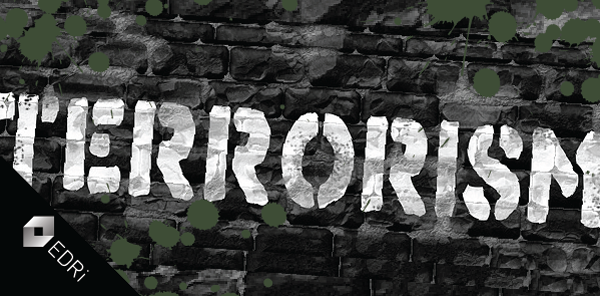Recklessly unclear Terrorism Directive creates significant risks for citizens’ security
On 16 February 2017, the European Parliament voted in favour of the EU Directive on combating terrorism. Weak, unclear, ambiguous wording in the Directive presents dangers for the rule of law, the right to privacy and freedom of opinion and expression of people in the European Union.
Adopting a Directive that is unclear and wide open to abuse is little short of reckless. The Directive brings few obvious gains for security, but its ambiguity creates major risks for democratic freedoms,
said Maryant Fernández Pérez, Senior Policy Advisor at European Digital Rights (EDRi).
We will now have to wait over four years for the European Commission to assess whether the Directive and its implementation by Member States violate our fundamental rights and freedoms. This is unacceptable,
she added.
EDRi and other civil society organisations have worked hard with policy-makers to solve key issues. As a result, for example, the freedom to express radical, polemic or controversial views in the public debate on sensitive political matters is now part of the final text of the Directive. This, at least in principle, recognises human rights that have been affirmed by the European Court of Human Rights. However, the EU co-legislators decided to ignore a long list of dangerous provisions. For instance, the Directive criminalises “glorifying terrorism”, without defining what it means, thereby creating the risk of accidental or deliberate imposition of (or threat of) excessive punishment and censorship. In addition, the Directive criminalises consulting “terrorist websites”, which will create an obvious chilling effect as people avoid the risk of viewing anything that might be subsequently decided to be a “terrorist website”. Indeed, this week, the French Constitutional Court declared a similar provision unconstitutional.
Civil society has repeatedly warned policy-makers against the adoption of a seriously flawed Directive. According to the European Parliamentary Research Service, all stakeholders that have followed this legislative process have expressed serious concerns. Yet, the flaws have been ignored. What’s more, the final text also ignores valuable recommendations given by the European Economic and Social Committee on 17 March 2016.
We thank the MEPS who voted against the Directive, as they have understood that we cannot fight terrorism by weak, ambiguous legislation that will undermine the freedoms we are defending.

Background information:
The legislative process to adopt the Directive lacked in public participation and transparency. The European Parliament vote is the conclusion of a fast-tracked process, whose excessive haste can be seen in its weak drafting. Member States now have 18 months to implement the Directive, except for the United Kingdom, Ireland and Denmark, which decided not to be bound by it. The European Commission will have to conduct a report assessing the implications of the implementation of the Directive on human rights and the rule of law. However, we will have to wait a minimum of 54 months for this report to be delivered.
Read more:
The time has come to complain about the Terrorism Directive (15.02.2017)
https://edri.org/the-time-has-come-to-complain-terrorism-directive/
Terrorism Directive: Document pool
https://edri.org/terrorism-directive-document-pool/
European Union Directive on counterterrorism is seriously flawed (30.11.2016)
https://edri.org/european-union-directive-counterterrorism-seriously-flawed/

